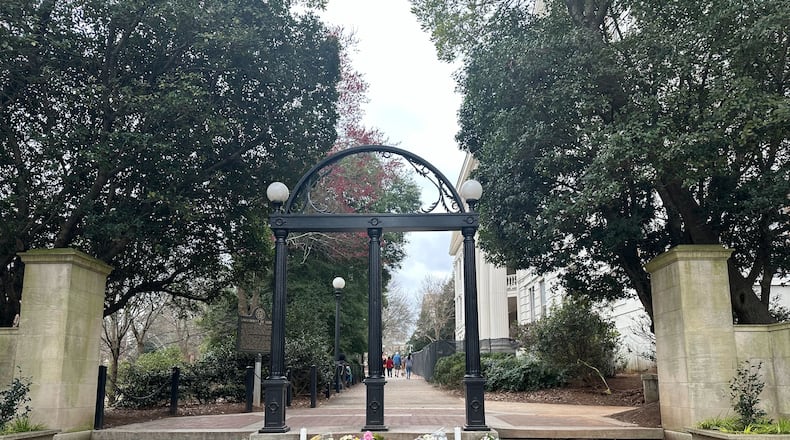Over the last week, a searing tragedy on the campus of the University of Georgia gripped the nation, as news spread of the violent killing of Laken Riley, a 22-year-old nursing student.
According to Hispanic students at UGA, the devastating loss of life has led to another tragedy: a feeling of unease, uncertainty, and even fear for members of the Latino community on campus.
The man charged by authorities with Riley’s killing is Jose Antonio Ibarra, who had unlawfully crossed the U.S.-Mexico border in 2022. He is part of an influx of Venezuelan nationals who have sought to resettle in the U.S. in recent years. His identity as an immigrant has turned the UGA death into a salient flashpoint in the nation’s immigration debate, with border policy looming as a critical campaign issue in the lead-up to this year’s presidential election.
Former President Donald Trump labeled Ibarra a “monster” and blamed the current administration for an “invasion” that is “killing our citizens.” Others have echoed that sentiment, including here in Georgia.
Students say they’ve already felt the impact of that rhetoric. While students and those who work with immigrant groups in Athens were reluctant to speak to reporters this week, they made their views clear on social media and in public statements.
“In light of recent events, we find ourselves confronted with the painful reality of hatred and bigotry that has no place within our campus community. The hurtful and discriminatory comments made following the tragic loss of one of our own have deeply shaken us all. Such grief should not be made use of for racism, hatred, or xenophobia,” read a statement on social media posted by the head of two student organizations: Ximena Cabrera of Latino/as Invested in the Students of Tomorrow and Stephany Romero-Gomez of the Hispanic Student Association.
“We recognize the fear and uncertainty that many of us may be feeling in the wake of these events. … Now, more than ever, we must come together to reject hate in all its forms and create a campus community where every member feels safe, valued, and respected. We belong here just as much as any other,” the statement reads.
Roughly 7% of UGA’s student body identifies as Hispanic, according to enrollment data.
On Monday, the groups Cabrera and Romero-Gomez lead collaborated with a mental health clinic in Athens that provides bilingual and bicultural counseling services to the Latino community to offer an on-campus emotional support event, called Siempre Unidos, or Always Together.
According to a report from The Red & Black, UGA’s independent, student-led newspaper, attendees were given resources to process grief and “cope with racial trauma.”
“We decided it was important and imperative to create an event in which our members felt supported emotionally, just because of the stress and all the burden that we’ve been feeling,” Cabrera told the campus publication.
In an additional social media statement, a group of Latino underclassmen affiliated with First Gen Dawgs, an organization of first-generation students, also evoked the tension that has been felt by Hispanic community members on campus.
“Our hearts ache knowing that our members face threats and fear simply due to their ethnicity, making them hesitant to set foot on campus. This must cease immediately. … We condemn those who have exploited this crime to harass an entire group of people and call on the University of Georgia to eradicate the hateful sentiment that has befallen our Latino students following the revelations related to this case.”
Elsewhere in their statement, students wrote the following: “While we unequivocally condemn the heinous crime committed against a fellow peer, we are equally appalled and outraged by the unjust targeting and harassment endured by the entire Latino community in its aftermath. Within a mere 24 hours, we’ve witnessed despicable instances of racist rhetoric directed towards Latinos, which is wholly unacceptable. It is infuriating to witness Laken’s untimely death politicized to further a racist and xenophobic agenda against Latinos.”
The Atlanta Journal-Constitution and Report for America are partnering to add more journalists to cover topics important to our community. Please help us fund this important work at ajc.com/give
About the Author
Keep Reading
The Latest
Featured



